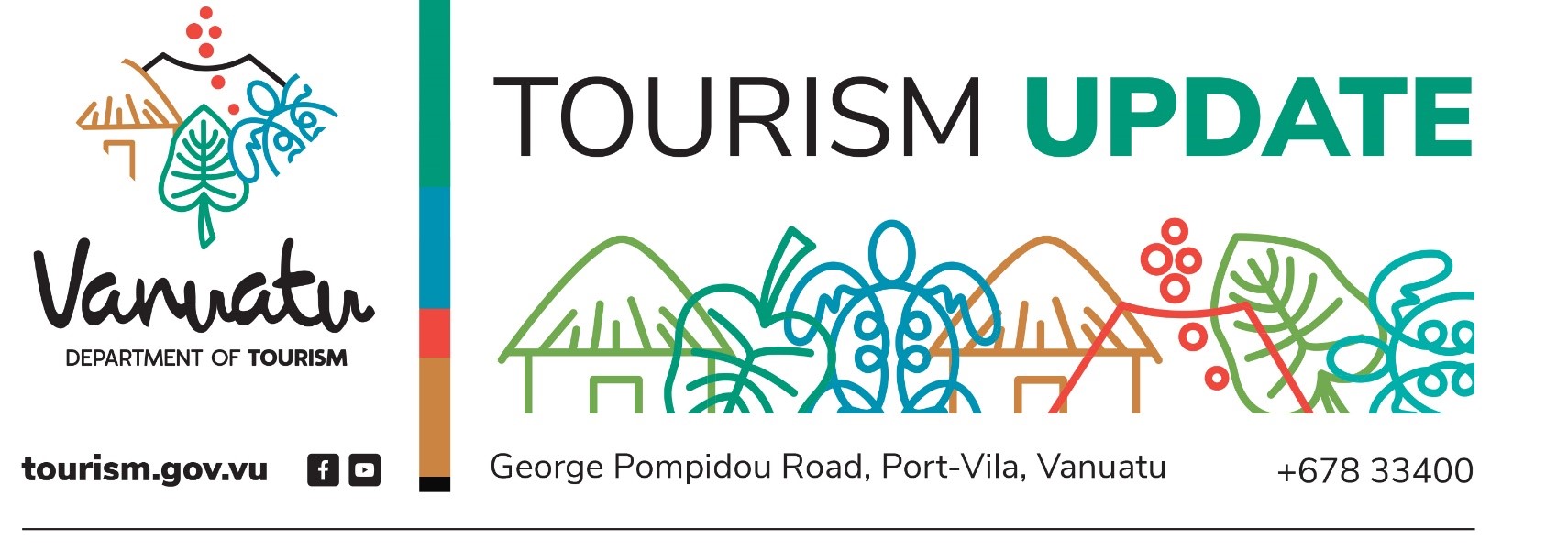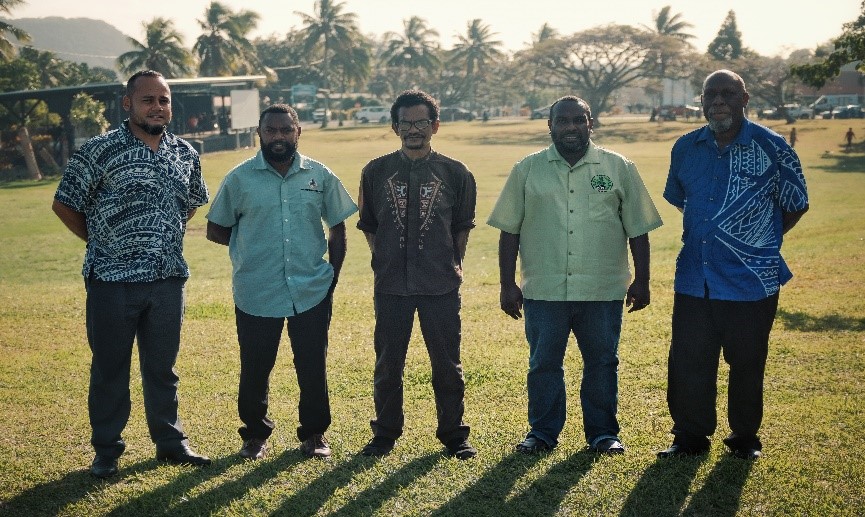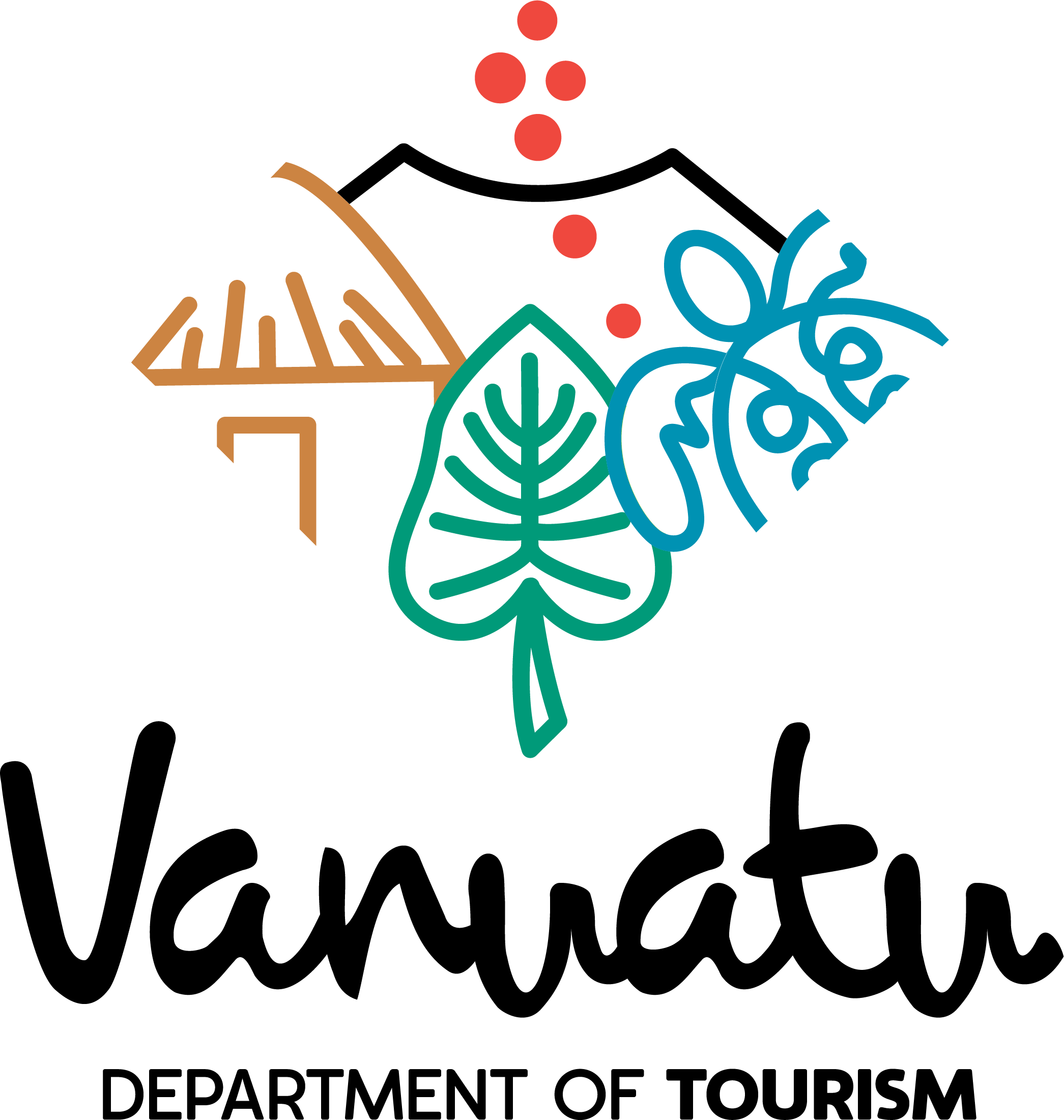
Wok Tuketa blo wan Sustainable Future
Vanuatu was listed as the 8th most tourism dependant country in the world. With only a few natural resources beyond pristine beaches, waterfalls, blue holes, forests and breathtaking views, tourism is an obvious economic focus. Being an Island nation, Vanuatu is also extremely vulnerable to climate change. This puts the country at high risk from rising sea levels, salinization of soil threatening crops, coral reef death, as well as extreme and increasing weather events.
The Honourable James Bule, Minister of Tourism stated that “While Vanuatu has been described as vulnerable in terms of GDP reliance on tourism, Vanuatu as a nation is made up of strong and resilient people, people that open their homes to others for shelter, villages that supply food to other villages who have lost their gardens. No one in our country goes without food or shelter because this is our way of life, these are our values, this is the ‘kastom ekonomi’ (traditional economy)”.
Director of Tourism Mr. Jerry Spooner confirmed that “Since gaining our Independence we have known the importance of maintaining our kastom ekonomi and our kastom land to keep our people resilient and protect us from poverty. However, in the past, our tourism industry has developed in overtime, in a way that threatens the very things that ensure our people’s wellbeing. Our Vanuatu Sustainable Tourism Policy (VSTP) (2019-2030), which was officially endorsed by the Government in early 2019, aims to provide meaningful jobs for our people, particularly our most vulnerable, while ensuring that tourism no longer threatens our way of life and our resilience”.
Mr. Spooner further explained that “the VSTP has guided the development of Phase 2 and 3 of our Vanuatu Tourism Crises Response and Recovery Plan (VTCRRP) which is a call to the industry, community and the Government to transform our tourism industry from a dependent one to a more resilient one, so that it is more aligned with our traditional values. It is important that the tourism industry is ethical, inclusive, and cares for all our people. It should regenerate and protect our environment, kastom and culture, and offer us resilience in the face of climate change and external threats. The tourism industry gives us the opportunity to have meaningful encounters with others.”
The Vanuatu Tourism Crises Response and Recovery Plan (VTCRRP) focuses on the short to long term recovery of the tourism economy. Phase 1 of the VTCRRP focuses on activities to support the immediate safety, response, and economic recovery of Vanuatu’s tourism industry by initiating safety measures to reopen borders through restoration of international access and the re-start of tourism. The main focus of Phase 1 is in response to the COVID-19 impacts on the economy, while the primary focus of Phase 2 and 3 of the Recovery Plan is to support the transition to a more resilient and a ‘less dependent on tourism’ industry. This will ensure that the undesirable aspects of the tourism industry do not return like the overharvesting of natural resources, damage to the landscape, and pollution.
Phase 2 and 3 includes activities that can expediate the transition of Vanuatu’s tourism industry to better align with the goals and objectives of the Vanuatu Sustainable Tourism Policy (2019-2030). They also support tourism’s contribution to the Vanuatu National Sustainable Development Plan (2016-2030), the Sustainable Development Goals (SDG’s) and Global Sustainable Tourism Council (GSTC) criteria for sustainable tourism destinations.
Implementation of Phase 1 of the Recovery Plan requires effective collaboration between all stakeholders to be prepared in terms of health, access, business readiness, marketing, and communication. Mr. Spooner concluded that “now more than ever, as we see the increasing impacts and challenges brought from external threats such as the COVID-19 global pandemic and climate change, we as a nation must do everything possible to ensure our tourism industry in the future supports the wellbeing of our people, maintains viable access to our lands and secures our sovereignty. It’s time to ensure tourism is for the benefit, and not at the expense of our people and generations to come and refer to ‘Tourism for Vanuatu’ and not ‘Vanuatu Tourism’”.
“In order for the Department of Tourism to successfully implement the Vanuatu Sustainable Tourism Policy, it requires strong collaboration between key partners such as the Department of Environmental Protection and Conservation, Kaljoral Senta, Malvatumauri Council of Chiefs, Department of Agriculture and others. The National Tourism Forum 2020 is scheduled for next month which will showcase what the future of Tourism for Vanuatu will look like. It is essential that all partners understand the importance of their role in this effort, especially if we are wanting tourism to be for Vanuatu, and not the other way around” says Mr. Spooner.
Please send any questions on tourism recovery by email to

From the left: Director of Tourism, Jerry Spooner; Department of Environmental Protection and Conservation, Christopher Bulerop; Director of Kaljoral Senta, Richard Shing; Director of Agriculture, Antoine Ravo; CEO Malvatumauri Council of Chiefs, Jean Pierre Tom


